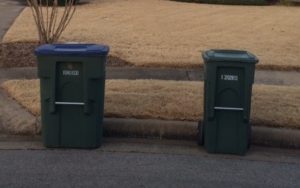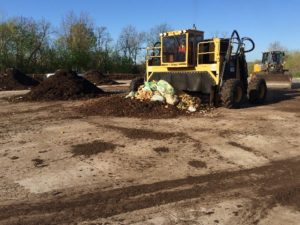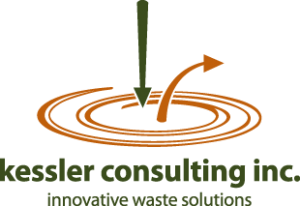CITY OF FAYETTEVILLE
ARKANSASMaster Plan
KCI assisted the City of Fayetteville in developing a Master Plan aimed at achieving an efficient, cost-effective solid waste system that maximizes waste reduction and recycling and puts the city on a path to attaining its goal of 80 percent waste diversion.
Project work included a waste composition study; evaluation of the city’s collection, processing, and transfer operations; and benchmarking of the existing program. Based on findings of this initial work, KCI then identified waste diversion opportunities and strategies to take advantage of these opportunities. These strategies included new and expanded programs, innovative policies, productive partnerships, and, for some material streams, development of new facilities.
Obtaining stakeholder input was key to the project and achieved through public meetings, as well as meetings with elected officials, multi-family property managers, local Chamber of Commerce, private sector vendors potentially interested in partnering with the city, two regional solid waste planning groups, and conducting surveys.
Based on KCI financial modeling results and selection of the scenario that best met the city’s objectives, a proposed action plan was developed. The action plan identified policy, program, and facility recommendations and a phased approach for implementation.
During the course of the project, two strategies were identified that were considered important enough to pilot rather than wait until completion of the Master Plan – food waste collection and processing and single stream recycling.
Findings, results, and recommendations of all work conducted during the project were compiled into a final Solid Waste Reduction, Diversion, and Recycling Master Plan.
The purpose of this KCI-developed pilot program was to evaluate the collection logistics and composting of food waste to determine the feasibility of a citywide commercial food waste program. Food waste was collected from nine pilot participants during a 21-week period and composted at the city’s compost facility utilizing the modified static aerobic pile (MSAP) system.
KCI also developed a survey for pilot participants to provide feedback. Participants were overwhelmingly supportive of the program. The pilot successfully demonstrated the feasibility of collecting food waste and effectiveness of the MSAP method for composting commercial food waste at the city’s facility.
 Single Stream Recycling Pilot Program
Single Stream Recycling Pilot Program
The single stream pilot consisted of two parts – curbside residential collection using carts and multi- family residential collection. KCI assisted with pilot program design, education and outreach materials, identifying and contracting with a recyclables processor, obtaining and coordinating the use of an automated vehicle locator (AVL) system to monitor service events, gathering pre-pilot and pilot data, data analysis, and report preparation. We also assisted with conducting surveys of participants in both parts of the pilot program.
The curbside residential pilot evaluated the impacts of converting from the city’s existing curb-sort system, in which materials are sorted by type from recycling bins into various compartments on the collection vehicle, to carted single stream collection. Approximately 1,000 households participated in this 14-week pilot program. The pilot demonstrated substantial increases in collection efficiency. Average collection time for the pilot area decreased by 58% while the quantity of recyclables collected increased by 94%. 98% of survey respondents supported implementing single stream recycling citywide.
The multi-family pilot evaluated the impact of converting from using partitioned roll-off containers stationed in the complex parking lot to single stream recycling containers. Two multi-family complexes participated in the 12-week pilot program. One complex utilized a chute system in which one chute was designated for recyclables. The other complex utilized recycling carts placed throughout the complex adjacent to existing garbage dumpsters. The average quantity of recyclables collected per unit per week more than doubled during the pilot program. All survey respondents supported converting multi-family complexes citywide to single stream recycling.
“The (Master Plan) uses sound methodology derived from current technology and data relevant to Fayetteville.”


